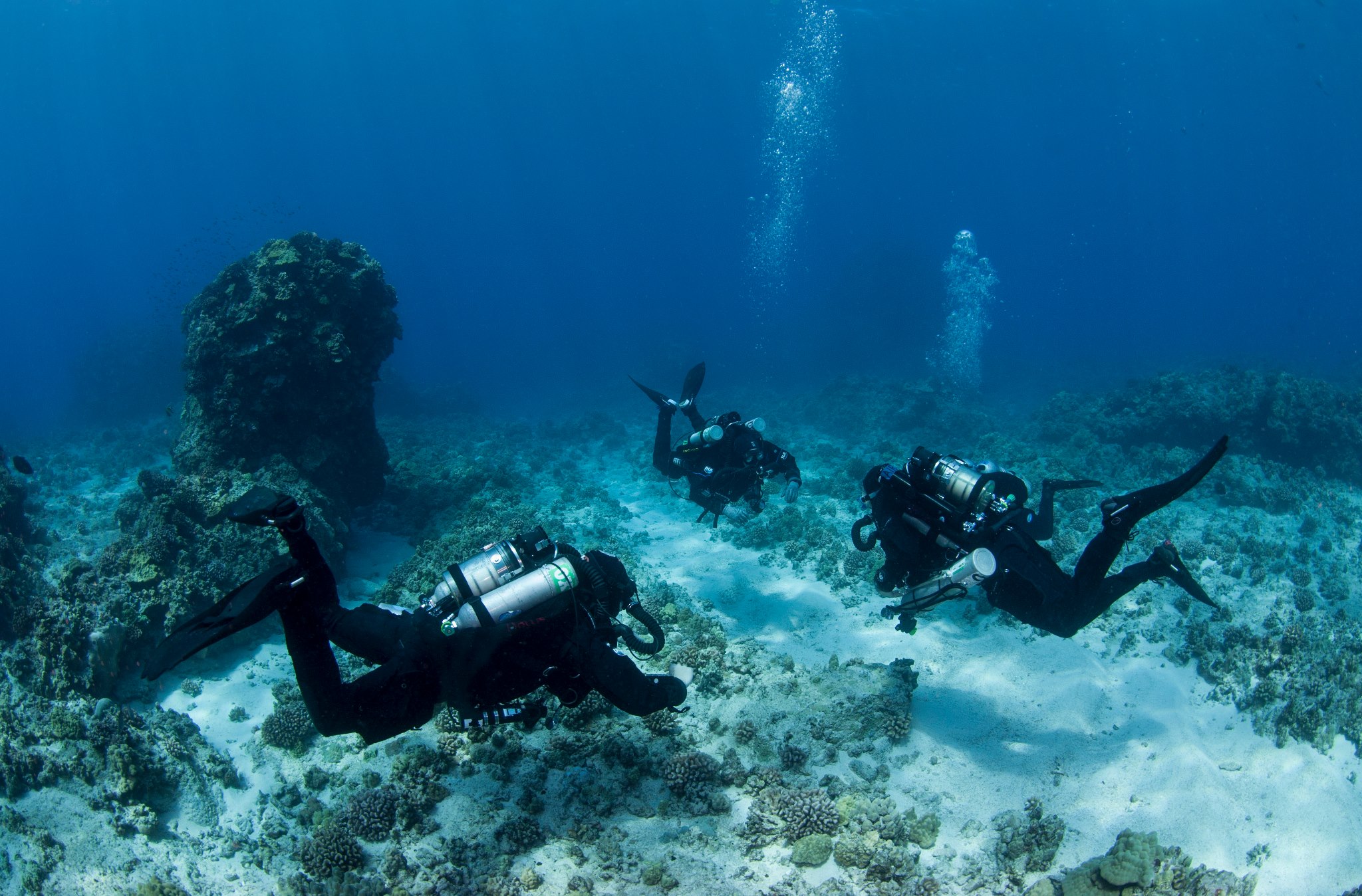Keys Firm Working with FKCC Acquires National Diving Program Certification

SWC, a local engineering, planning and environmental science firm, has created an official dive program that has received certification by the American Association of Underwater Scientists (AAUS).
“This has been a long-term commitment of SWC, to develop a program that addresses diver safety during work activities that meets federal OSHA standards and addresses requirements of many federal and State agencies,” said Sandy Walters, SWC president. “We worked together with Florida Keys Community College to certify our Dive Safety Officer Shawn Martin as an AAUS diver, and the head of the College AAUS program, Dr. Alex Brylske, has agreed to serve on SWC’s Dive Safety Committee,” reported Ms. Walters.
“We’re very excited to be working with SWC, as it affords opportunities for our students to engage with working professionals. Additionally, our scientific divers can help supplement their projects—it really is a win-win situation,” said Dr. Brylske, who is a professor of marine science and technology at FKCC and the college’s dive safety officer.
Mr. Martin has a master’s degree in marine biology from Nova Southeastern University and holds a 50-ton vessel captain’s license. SWC staff marine technician and diver Randy Corbin also acquired his AAUS certification through FKCC. In addition, SWC has a marine research permit from the Florida Keys National Marine Sanctuary.
AAUS programs require an extensive dive safety manual that covers all diving activities, and the dive safety officer must be a dive instructor as well as an experienced diver and marine scientist. “Probably the one protocol that is most critical to protect lives while conducting research activities while using SCUBA is to have, at a minimum, a properly-qualified boat operator, a diver on the boat ready to enter the water if needed, and two divers on the bottom working together at all times,” Ms. Walters observed.
“This adds cost to the work, but in a fashion that protects the divers, SWC, and our clients. Even government sovereign immunity protections do not apply to health and safety concerns, so if a diver operating without this protocol should have an accident, the diver or his family could sue all the way up the chain to the entity or agency originating the contract,” said Walters. “Work under bridges with swift currents in the Florida Keys, for example, can be very dangerous, and prevention is always more cost-effective than a serious accident or death.”
SWC was responsible for permitting the installation through horizontal directional drilling of transmission pipelines under seven channels in Islamorada for the Village’s wastewater project, and the Florida Keys National Marine Sanctuary required collection of baseline data regarding marine life on the sea bottom in case a break out of drilling material—called a frac out—should occur. “As this was before we had our program, we subcontracted this work to a very experienced AAUS-certified firm and they lost two underwater cameras during the work due to the ripping currents,” Ms. Walters said, explaining that this shows the essential need for proper safety protocol when conducting this kind of work. “We are delighted to have a certified program in-house now, to provide these services directly.”

